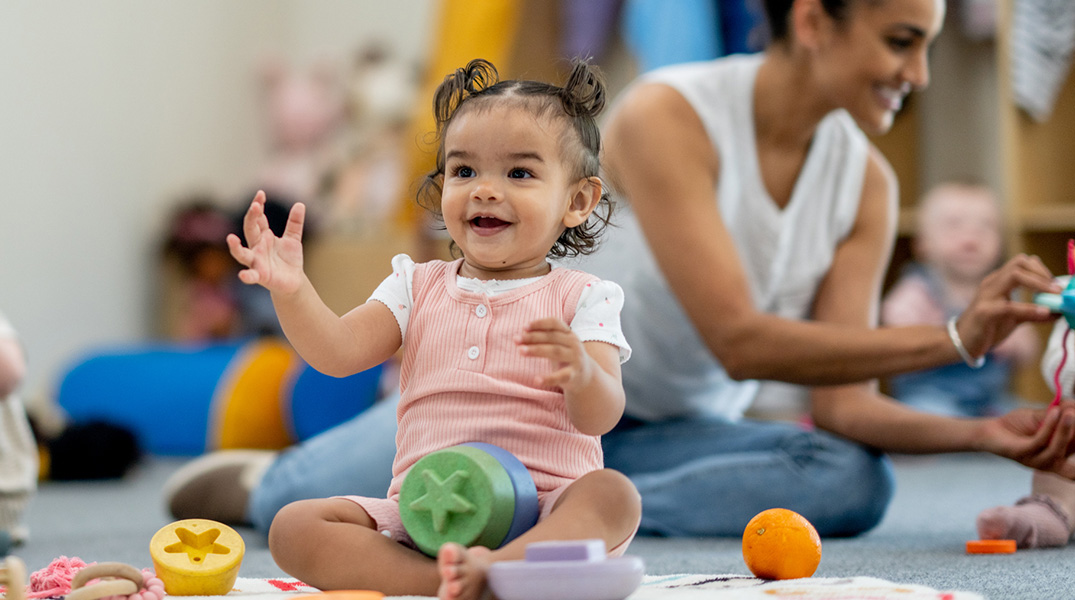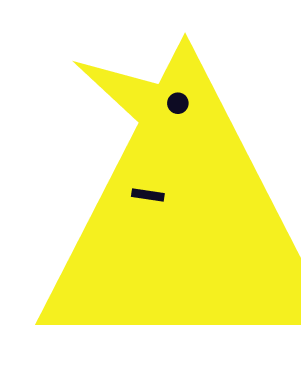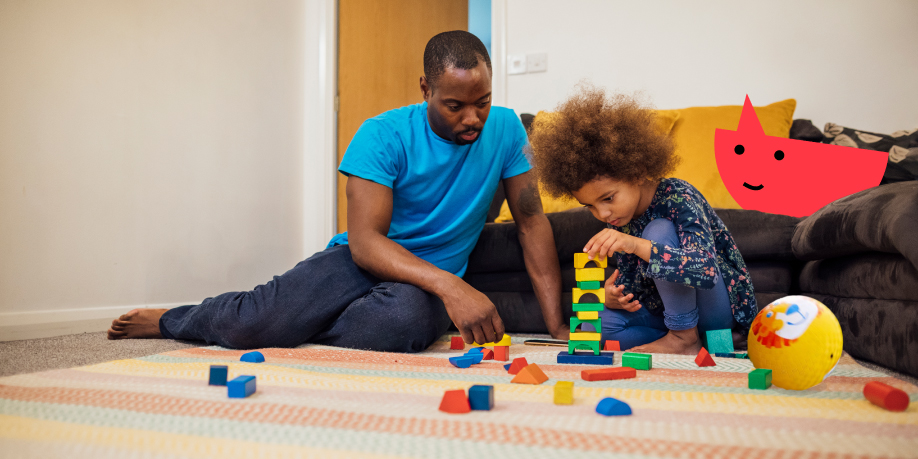12-18 months
This is a guide to how children typically learn to talk and understand words between 12 – 18 months.

Children develop skills at different rates but by 18 months, usually children will:
- Enjoy listening to music and singing, and sometimes move their body to ‘dance’ along to music.
- Enjoy looking at simple picture books together with an adult.
- Understand many more words than they can say, including the names of everyday objects like furniture, clothing and body parts.
- Understand some simple questions and instructions like ‘where’s teddy?’ and ‘kiss Mummy’.
- Say up to 20 single words (such as ‘cup’, ‘daddy’, ‘dog’) to ask for things or to point out what they see, even though they may not be very clear yet.
- Use a lot of babble and single words while they are playing. They often sound like they are saying little sentences even though you can’t make out what the words are.
- Copy a lot of things adults say or do, like saying ‘hi’, waving bye-bye or clapping.
- Enjoy simple pretend play, such as giving dolly a drink or pretending to talk on the phone.
- Get your attention to show you or ask for things using pointing, actions or words.
- Start to get more independent although they still like to be near you.
Resource library for families

Things to look out for
Some children struggle with learning to talk and understand words. Possible signs to look at for at this early age include:
- Your toddler isn’t babbling to talk by 12-15 months.
- Your toddler hasn’t said their first words by 18 months.
- Your toddler doesn’t appear to understand some of what you say to them by 18 months.
If you notice any of these things, talk to your health visitor or GP, or your child’s setting or childcare provider. You can also contact our free speech and language advice line, which is a confidential phone call with an experienced speech and language therapist. During the 30-minute call, you will be given the opportunity to talk through your concerns and questions regarding your child’s development. You can book your phone call here.
Further support
For tips on how you can support your child’s communication skills, have a look at some of our parent resources:

